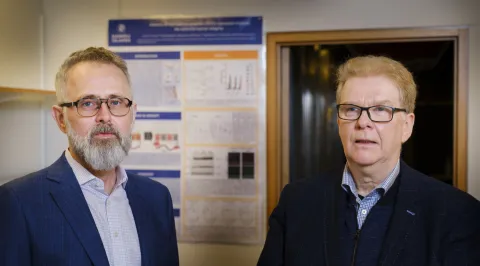
The start-up company Akthelia Pharmaceuticals and the University of Iceland are leading a project that has been awarded a grant of EUR 6 million, the equivalent of almost ISK 900 million, from the European Union. The project aims to develop new drugs that will boost the body's natural immune response or innate immunity in order to combat the growing threat from antibiotic-resistant bacteria.
The project, which is called IN-ARMOR, is a collaboration between nine universities and research institutes and seven companies in nine different European countries. IN-ARMOR is an attempt to tackle the global issue of antibiotic-resistant bacteria, a problem that the World Health Organization has defined as one of the ten biggest threats to public health in the world.
An estimated five million deaths can be attributed to increased antibiotic resistance and there are fears that multiresistant strains of bacteria could cause a pandemic. We need new ways to deal with infections and Akthelia is striving to find solutions.
